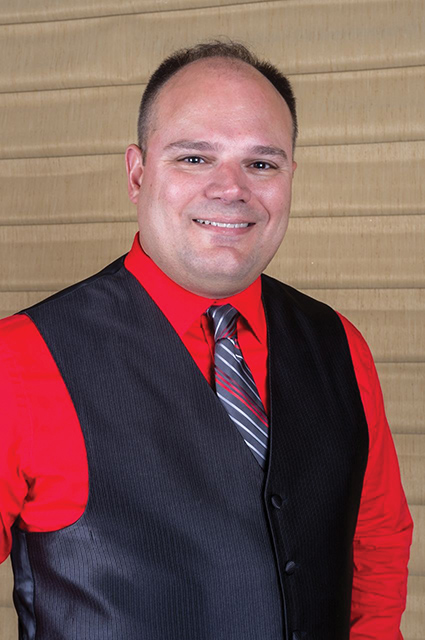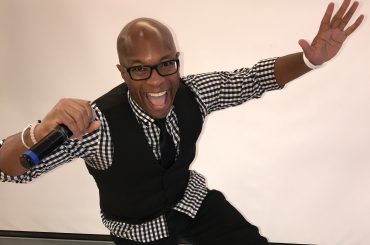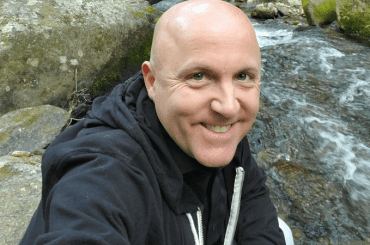Staten Island, N.Y. — Like many in the New York metropolitan area, Mike Kazis’ path to the DJ profession ran through John Murphy, the founder and CEO of Star DJs. At the time, in the late ’80s, Kazis was in a modeling school—he used to do runway modeling for bridal shows, which, he admits, “you’d never guess this now.”
The New Jersey-based Murphy, ever the scout, was recruiting for new DJs that he could train. “It seemed like a good opportunity,” says Kazis. “So I accepted.”
Turns out, the training was superb. “Everything you need to know to be a great DJ is what I learned from them,” he says of Star DJs. “I learned how to address a crowd during announcements or intros, what music to play at parties, how to beatmix, how to ad lib and improvise during an event, and how to persuade and control a crowd during games and other formalities.”
It was such effective training that within a few years Kazis was ready to fly solo. In 1992, he started the company that would eventually morph into Dynamite Party Productions. The challenges were typical, no matter how good his training regimen had been from Star DJs.
“One of the biggest challenges for me has been employee retention,” he says. “DJs would leave or I’d stop using them for various reasons – not enough extra work to keep them busy, not the right fit for the company’s needs, etc. Another challenge for me was rebranding my business in 1997 after a previous partner and I split the business. I merged my business with another company from 1994 to 1997, and we operated under a different name.”
Kazis has learned that you can’t just hire anyone that wants to be a DJ. “Their individual characteristics have to fit what your business needs to keep your customers happy,” he says. “To maintain retention, I look for hard-working, proactive, knowledgeable, and resourceful people. The more I can delegate to someone — or the more they could copy what I could do, the better.”

When he was re-branding his business in 1997, he knew it would take time—time to build the Dynamite Party name as its own. “By then, I was also learning new skill sets anyway because I was going back to school to complete my degree in computer information systems,” he says. “The technical skills I learned there helped me keep the company on the edge of new technology. Grad school in 2005 also helped a great deal because I turned my focus toward achieving my MBA, which I completed in 2008.”
Kazis says Dynamite is set up as a partnership, with one equal partner that he brought on board and trained as a DJ. “I made him a partner in 1999,” he says. “The ownership of the business is one aspect of the company, but how it’s managed is another aspect. We have a concrete organizational structure in place where we’re both in charge of different business categories. One person might be in charge of operations and the other might be in charge of sales and marketing.”
I asked Kazis if he sees Dynamite as an entertainment entity, or a business. “I think that my perception of the two is one and the same,” he replied. “To me, Dynamite Party is its own entity and is branded as a collective of entertainers. We also recognize this entity is one type of business that we prefer to categorize as an entertainment company.”
Although he’s based in Staten Island, Kazis is the president of the New Jersey Disc Jockey Network—just one bridge away. “It is indeed possible to stand out in a competitive market, but it’s a very challenging,” he says of the crowded New Jersey-Staten Island market. “You need to evaluate what your current strengths and weaknesses are, to come up with a strategy to set yourself apart from the competition.”
Kazis adds that “standing out” could mean different things to different people. “For instance, you could be a great music mixer, a singer, or musician with talent that would catch the attention of a large crowd or you could be great at providing great customer service to clients behind the scenes. Standing out could come from just about anything you do, and do well.”
His five-year plan is to grow the business, so there are more jobs available for more staff. “We recently upgraded our management infrastructure to handle the demand,” he says. “We’re actually on schedule for upgrading our marketing plans for 2017 to help accomplish our five-year goals. The plans are, of course, reviewed and modified whenever something changes in present times.”
When asked what piece of advice he’d offer to a young DJ starting in the business, Kazis’ many years of experience speaks for itself. “Never think you know all there is to know – continue to improve,” he says. “Always stay on top of your marketing, and never believe that status quo is always the best choice for your business.”
For Mike Kazis, those words have been put to good use.








